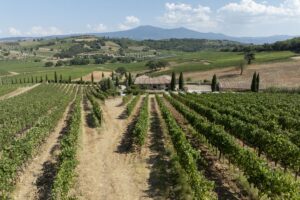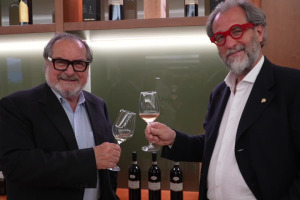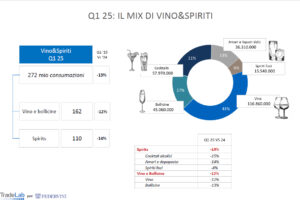Italy’s no to GMOs is more and more convinced, and does not even leave room for new techniques such as the New Breeding Techniques that, unlike traditional techniques, modify parts of the plant’s genes, through the correction of the genome (genome editing) without the use of DNA from other organisms, as happens in transgenic GMOs. A significant difference, which has been debated in Europe and elsewhere for years, but that has not convinced the Agriculture Committee of the Chamber of Deputies, which a few days ago expressed its negative opinion to the decrees presented by the Ministry - to date without guidance - of Agriculture. An opinion welcomed with satisfaction by environmentalist associations and organic farmers, less so by a relevant part of the research world.
“It’s a step backward, I don’t even know if in good or bad faith, dictated by the fact that the results of this kind of research are considered GMOs”, Professor Attilio Scienza explains to WineNews. “But it is not so, because the products of the editing genome are clones of a variety, which has undergone an artificial action that accelerates a natural change”. Staying on the example dearest to us, that of the vine, “a Sangiovese remains the same - explains Scienza - only its sensitivity to the disease changes, the rest remains the same, they are not GMOs. The hope to subvert the dominant, and denialist, vision is in the European Community, which will decide the compatibility of these techniques to the guidelines of community agriculture. Otherwise, as it often happens, we will limit ourselves to be vassals of other people’s researches, forcing us in the long run to buy the products of the research done in Germany or in France”, concludes the professor of Oenology of the University of Milan.
The opposition to the New Breeding Techniques, on the other hand, is similar to the positions expressed on GMOs. That well summarizes the Ifoam - International Federation of Organic Agriculture Movements, also supported by Valeria Sodano, Associate Professor of Agricultural Economics, Professor of Food Policy and Global Environmental Politics at the Department of Political Science, University Federico II of Naples, but also in the technical and scientific committee of the Biodistrict of Chianti, which reiterates a point of view more theoretical, ethical and philosophical than scientific. “ Compared to gene editing technology, the organic sector has so far maintained the same critical positions held against traditional GMOs. In fact, the products of the new genetic techniques are considered GMOs”.
Moreover, “Ifoam provides a clear definition of GMO: plant, animal or microorganism transformed by genetic engineering (genetic engineering, GE), where GE is indicated as a set of molecular biology techniques (such as recombinant DNA and RNA) by which the genetic material of plants, animals, microorganisms, cells and other biological units is altered in ways or with results that could not be obtained by natural mating and reproduction methods or natural recombination. Genetic engineering therefore includes genome editing systems such as Odm, Zfns Talen, and Crispr, while it does not include techniques such as conjugation, transduction, natural hybridization, and marker-assisted reproduction”.
Ifoam also clarified in a very rigorous way the reasons behind its position towards genetic editing, “which concern the incompatibility of the new technologies with the four founding Principles of Organic Agriculture: Health, Ecology, Fairness, and Care. First, the irresponsible environmental release of GMOs has caused and continues to cause a significant reduction in biodiversity, soil fertility, with overall negative effects on human and animal health, thus violating the Principle of Ecology and the Principle of Health. Second, GMOs, and related regulatory policies in many countries, have led to a reduction in farmer and consumer choice, violating the Equity Principle. Third, the Principle of Care, which requires that the potential for negative impacts on the environment and society be avoided with the utmost precaution and that those who develop and disseminate the technology be held accountable for the negative effects, has also been violated”.
In conclusion, “Ifoam’s final position so far is that “products such as GMOs should not be introduced unless they have undergone a rigorous, democratic and transparent assessment of the technology through participatory processes that include decision makers from every area of society and every group of people that will be affected by the technology; any introduction of GMOs should be limited to controllable circumstances”.
Copyright © 2000/2025
Contatti: info@winenews.it
Seguici anche su Twitter: @WineNewsIt
Seguici anche su Facebook: @winenewsit
Questo articolo è tratto dall'archivio di WineNews - Tutti i diritti riservati - Copyright © 2000/2025








































































































































































































